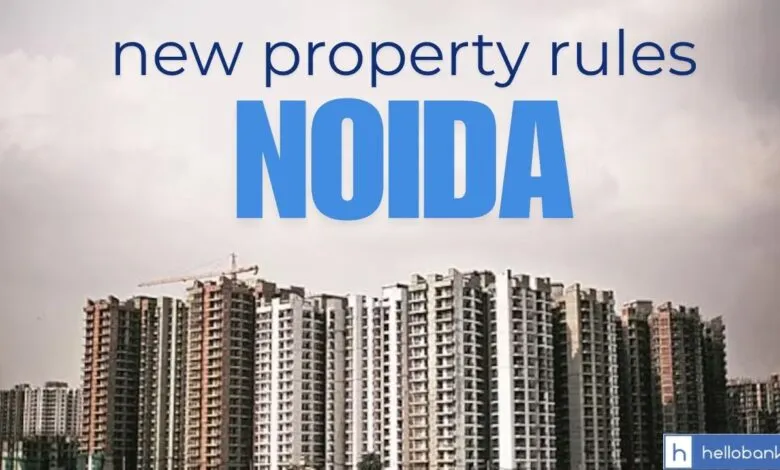
To ensure better protection for homebuyers in Noida, the Noida Authority has introduced a new rule requiring a tripartite ‘sale agreement’ to be signed between the buyer, builder, and Noida Authority. This must be done as soon as the buyer makes an initial payment of 10% of the property cost to the developer.
What’s New in the Process?
Previously, homebuyers and builders entered into an initial agreement on a ₹100 stamp paper, with the Noida Authority getting involved only after the builder had received the necessary occupancy and completion certificates for the project. However, with the new rule in place, the tripartite agreement must be registered soon after the buyer makes the initial payment, marking a significant shift from the old practice where registration took place only after the project was completed.
How Will This Rule Benefit Homebuyers?
The introduction of the tripartite agreement is aimed at enhancing buyer protection and transparency in property transactions. Experts believe this move will have several benefits:
- Immediate Legal Proof of Transaction: Once the buyer pays 10% of the property cost, they will receive a legally registered document confirming the sale. This document will include essential details such as the property’s total cost, payment terms, and possession date.
- Preventing Fraud: The tripartite agreement ensures that developers cannot sell the same unit multiple times or cancel agreements arbitrarily due to payment delays or missed timelines.
- Transparency in Ownership: The Noida Authority will now be informed immediately after a property is purchased, helping track ownership transfers and preventing tax evasion through resale without proper documentation.
- Increased Revenue for Authorities: The early registration of the sale agreement will also boost stamp duty collection, as the buyer will pay 2% of the stamp duty upfront, with the remaining balance paid at the time of possession.
Legal Framework and RERA Compliance
The new rule aligns with Section 13 of the Real Estate (Regulation and Development) Act (RERA), which prohibits builders from taking more than 10% of the property price without a formal agreement. This ensures that property transactions are legally binding and that both parties are protected.
M Lokesh, CEO of the Noida Authority, explained that the builder will submit the builder-buyer agreement along with a list of flat buyers, creating a tripartite deed between the authority, builder, and buyer. This agreement must be registered before the buyer receives possession of the flat.
A Step Towards Mumbai’s Practices
This move is similar to the practices followed in Mumbai, where a registered agreement is mandatory at the time of initial payment. Sunil Tyagi, Managing Partner at ZEUS Law Associates, highlighted that the registered agreement will help reduce the circulation of black money in the real estate sector and provide legal protection to both parties in case of disputes.
Streamlining the Process in Noida
In Noida, the legal process involves the builder acquiring leasehold rights from the Noida Authority, followed by approvals and registrations before sales begin. Once the buyer pays the initial 10% of the property cost, a registered agreement is required, and stamp duty must be paid. After the project’s completion and payment of the total price, the buyer receives possession, and a tripartite sub-lease deed is entered.
Strengthening Buyer Confidence and Market Transparency
The Noida Authority’s new rule strengthens buyer confidence by providing legal reassurance at the point of investment. This also helps developers adhere to project timelines, knowing that the entire transaction is documented and monitored from the start.
Sahil Aggarwal, CBO of Nimbus Projects Limited, emphasized that this policy promotes transparency and accountability, ensuring that both buyers and developers fulfill their obligations. Ravi Nirwal, Sales Director at Square Yards, also praised the rule, noting that it would allow buyers to make informed decisions and safeguard their interests in the long term.
Challenges Ahead
While the new norms are expected to increase transparency, they may also present some challenges. Builders might be concerned about the additional cost of paying 2% stamp duty upfront. Furthermore, in cases of secondary sales, the stamp duty paid on the initial agreement may need to be re-paid if the lease deed is executed between different parties.
Venkat Rao from Intygrat Law Firm pointed out that delays in registering the agreements could be a potential issue, especially since the process now involves the Noida and Greater Noida Authorities. Despite these challenges, the move is seen as a step toward making the property market more secure and transparent for homebuyers.
